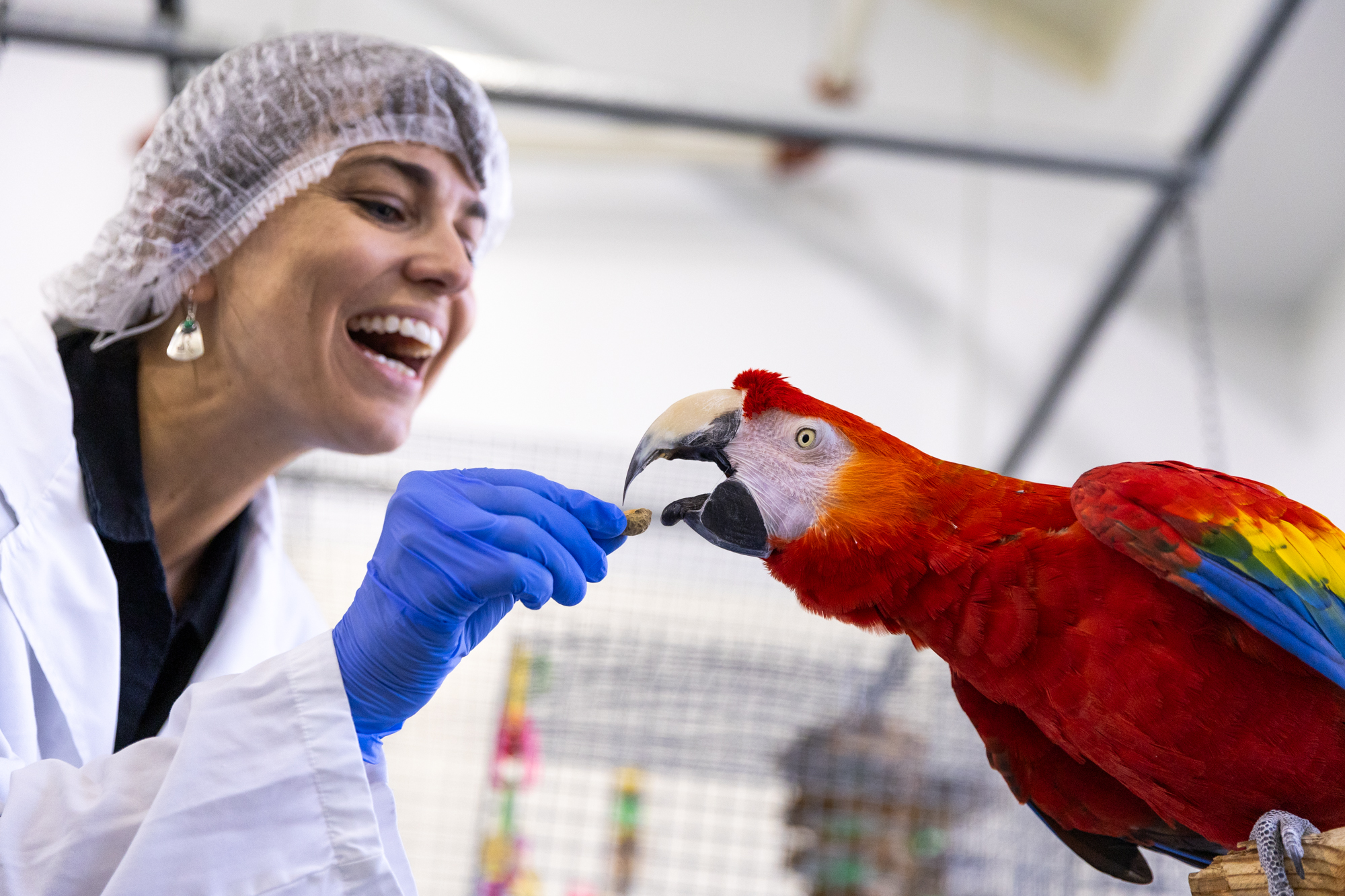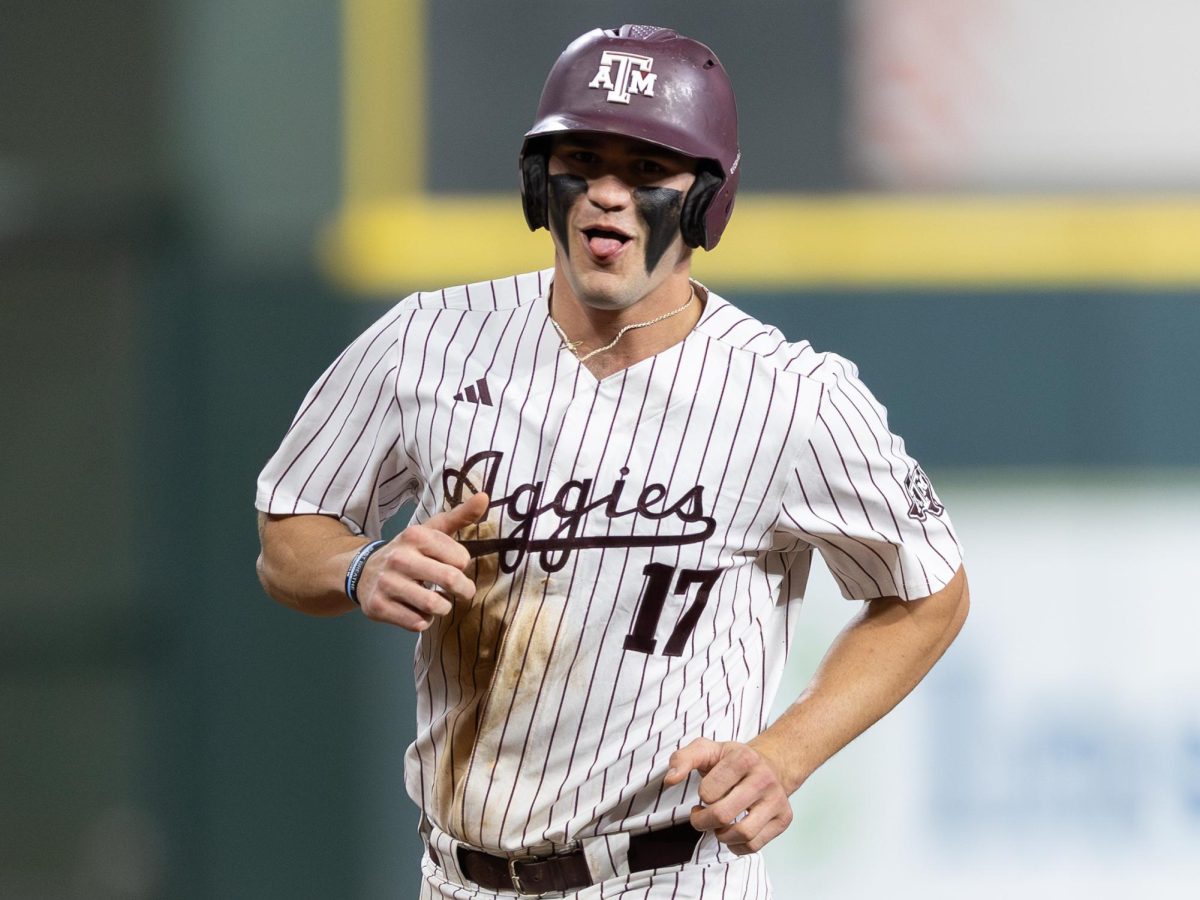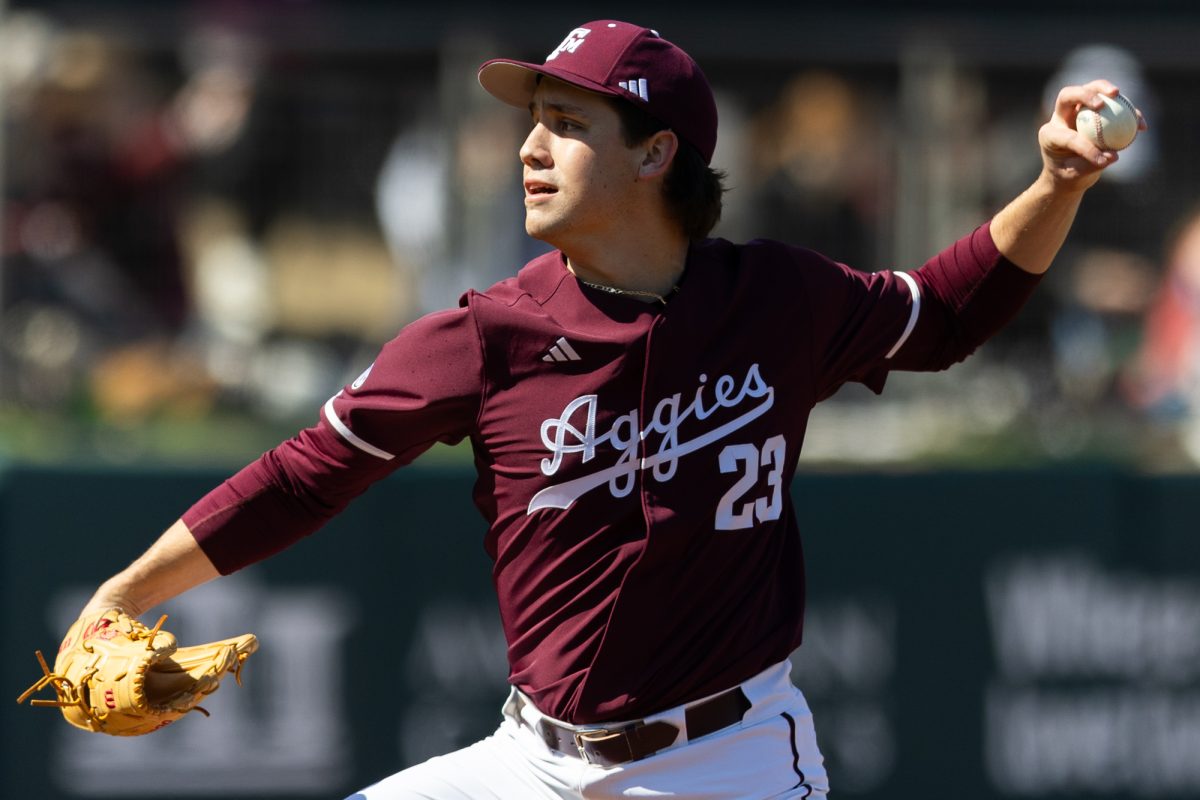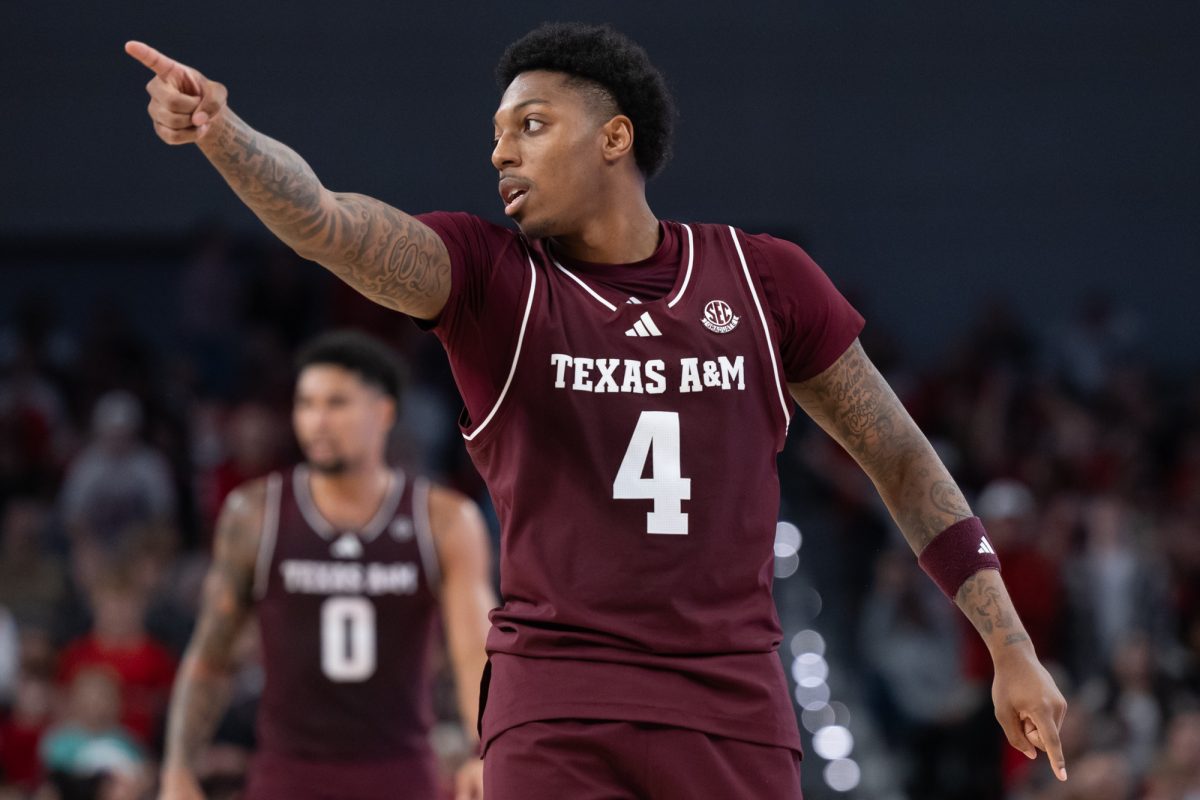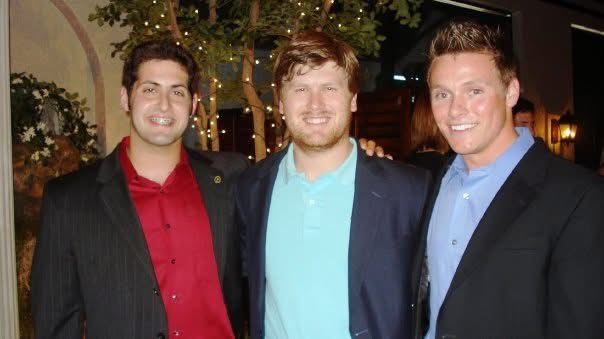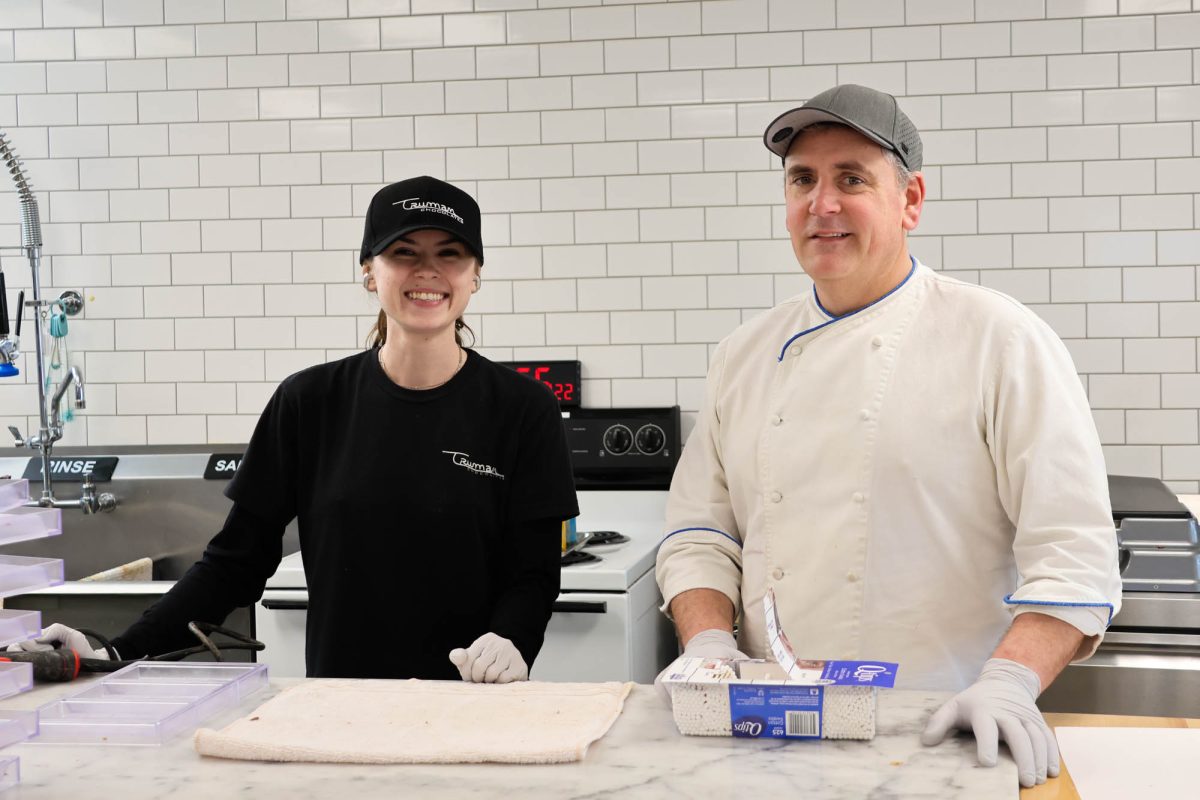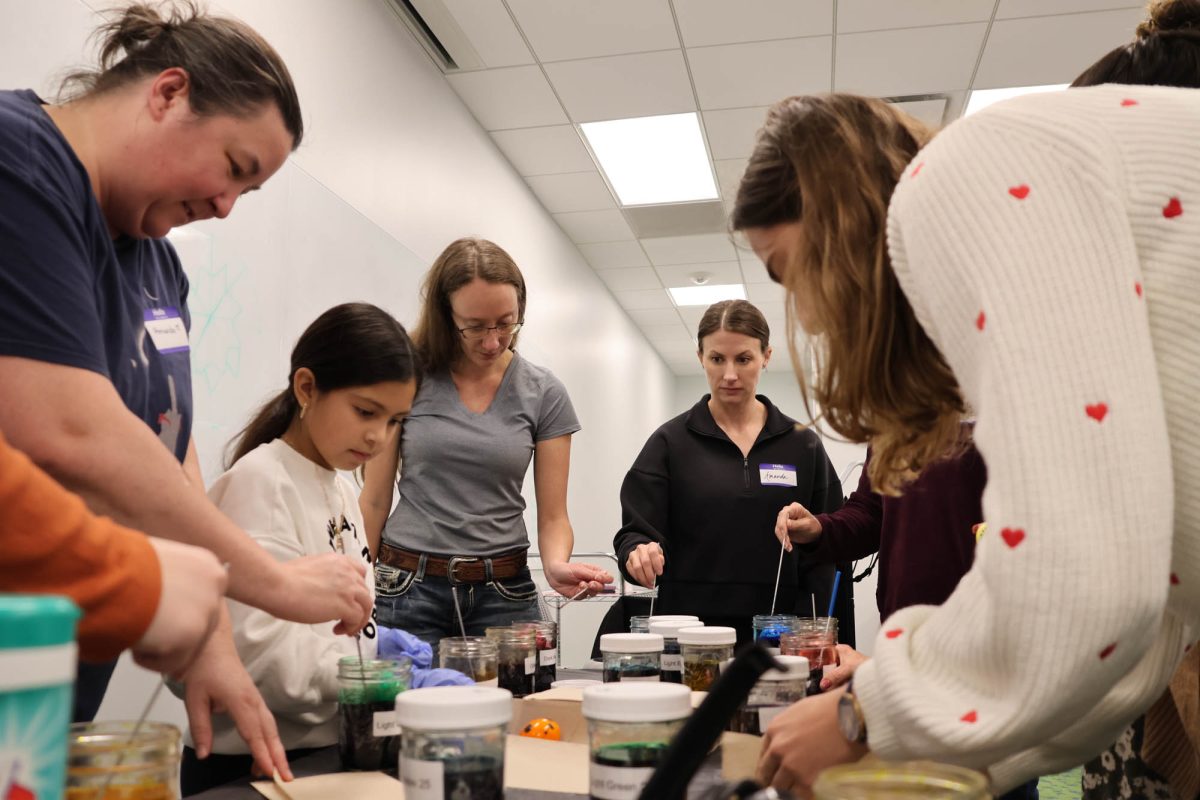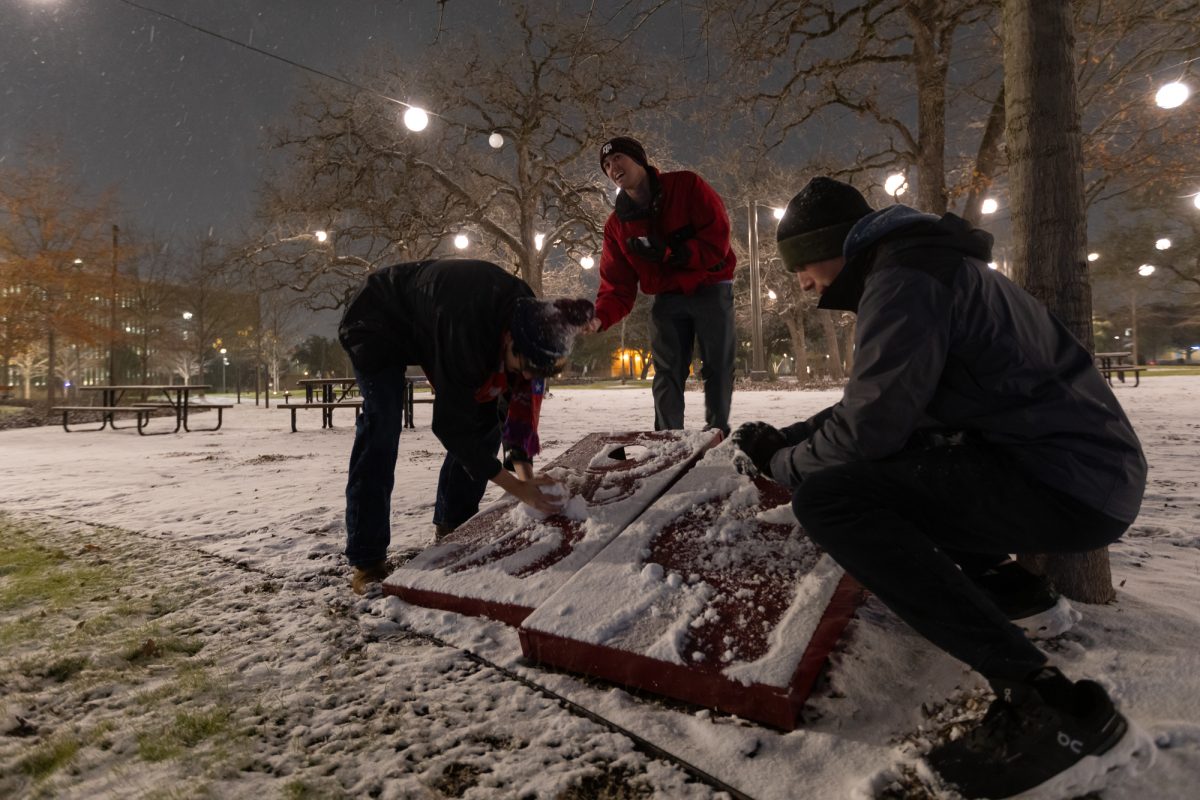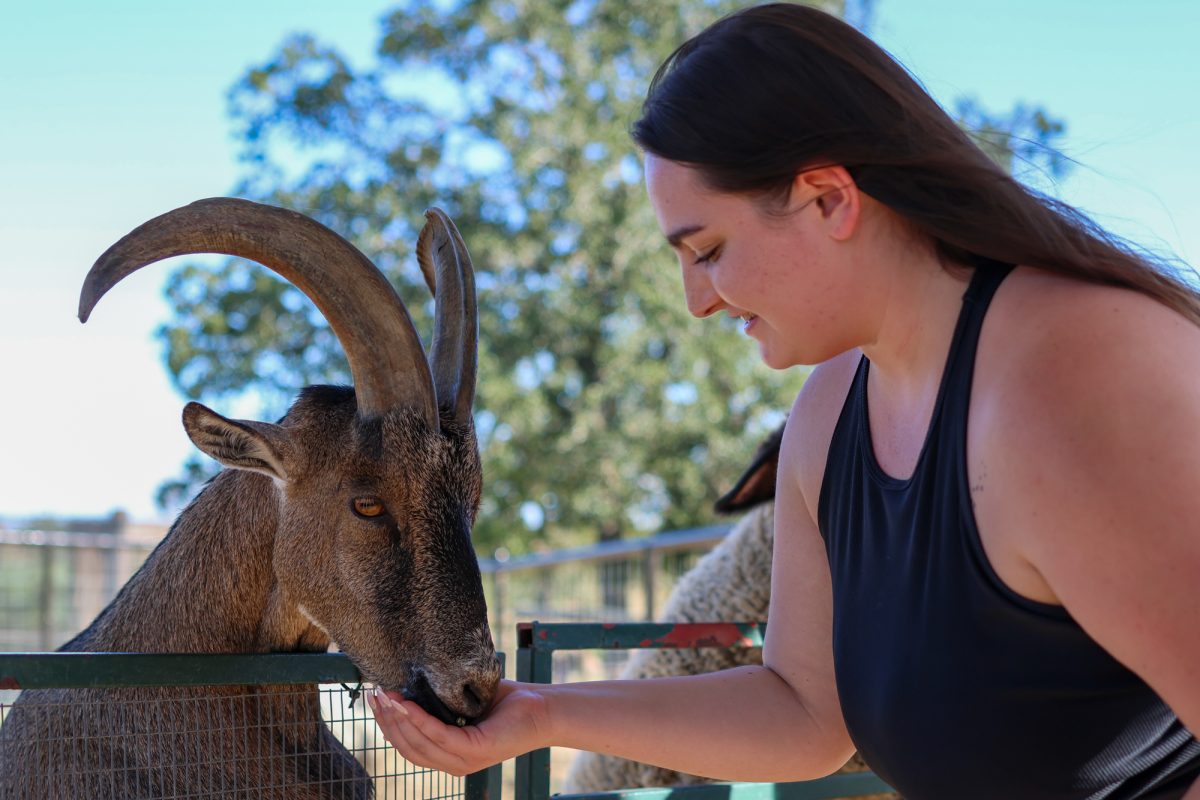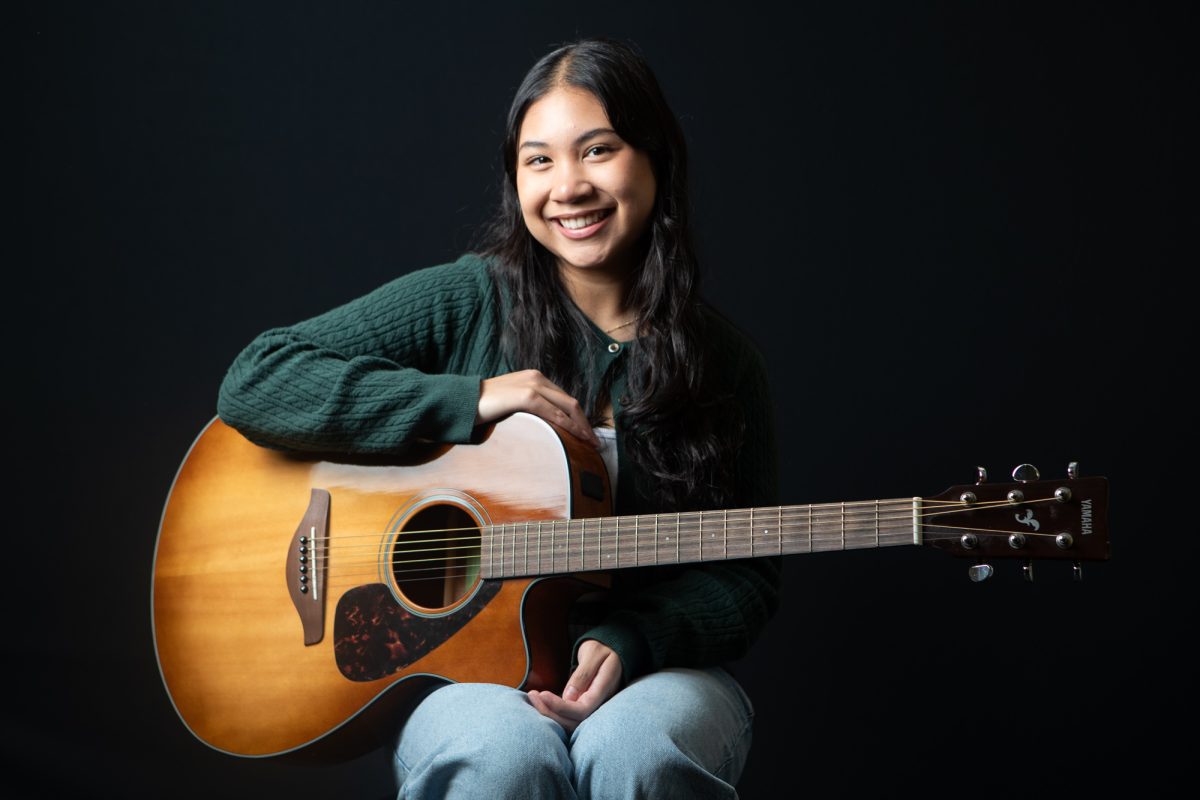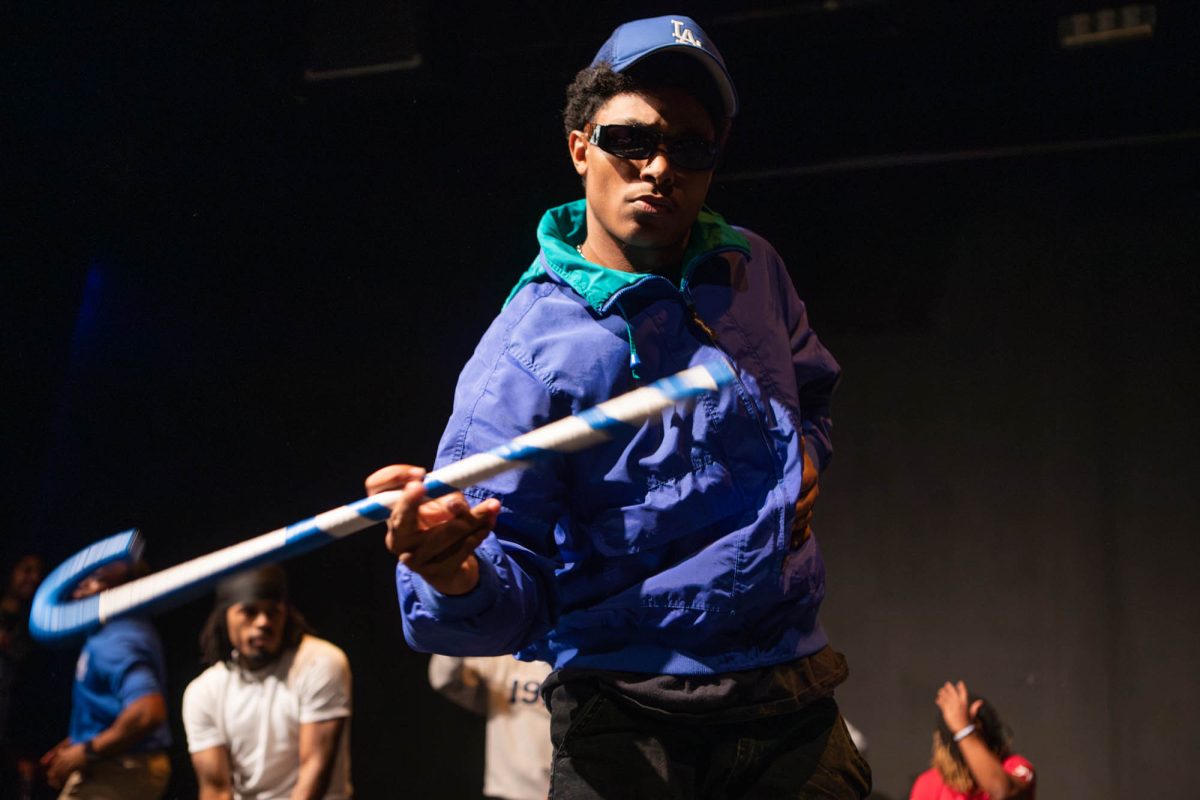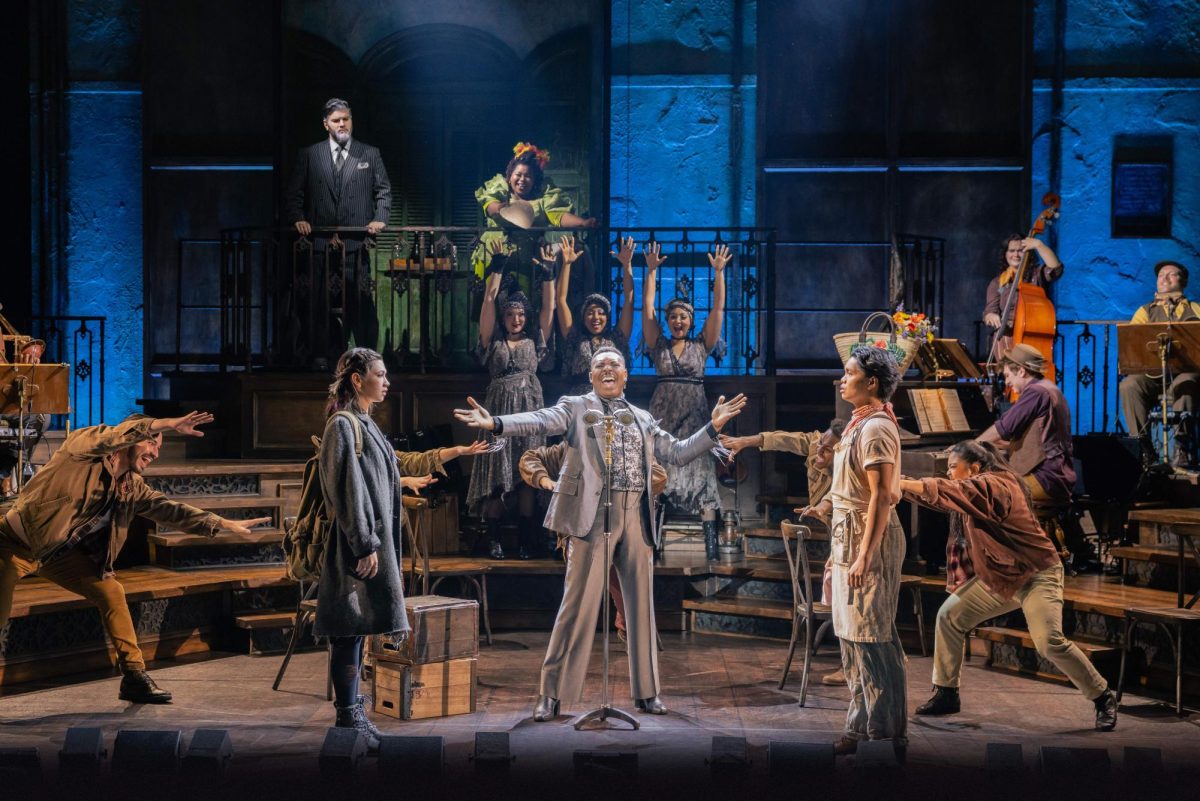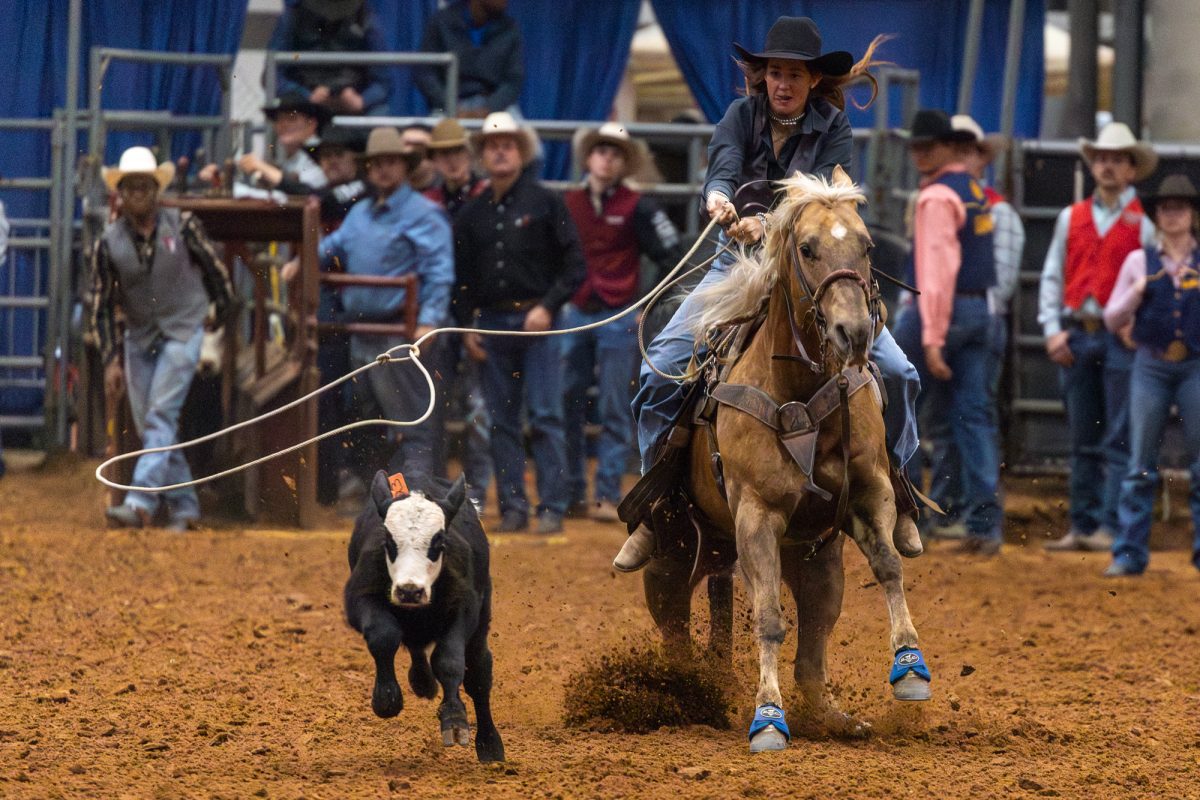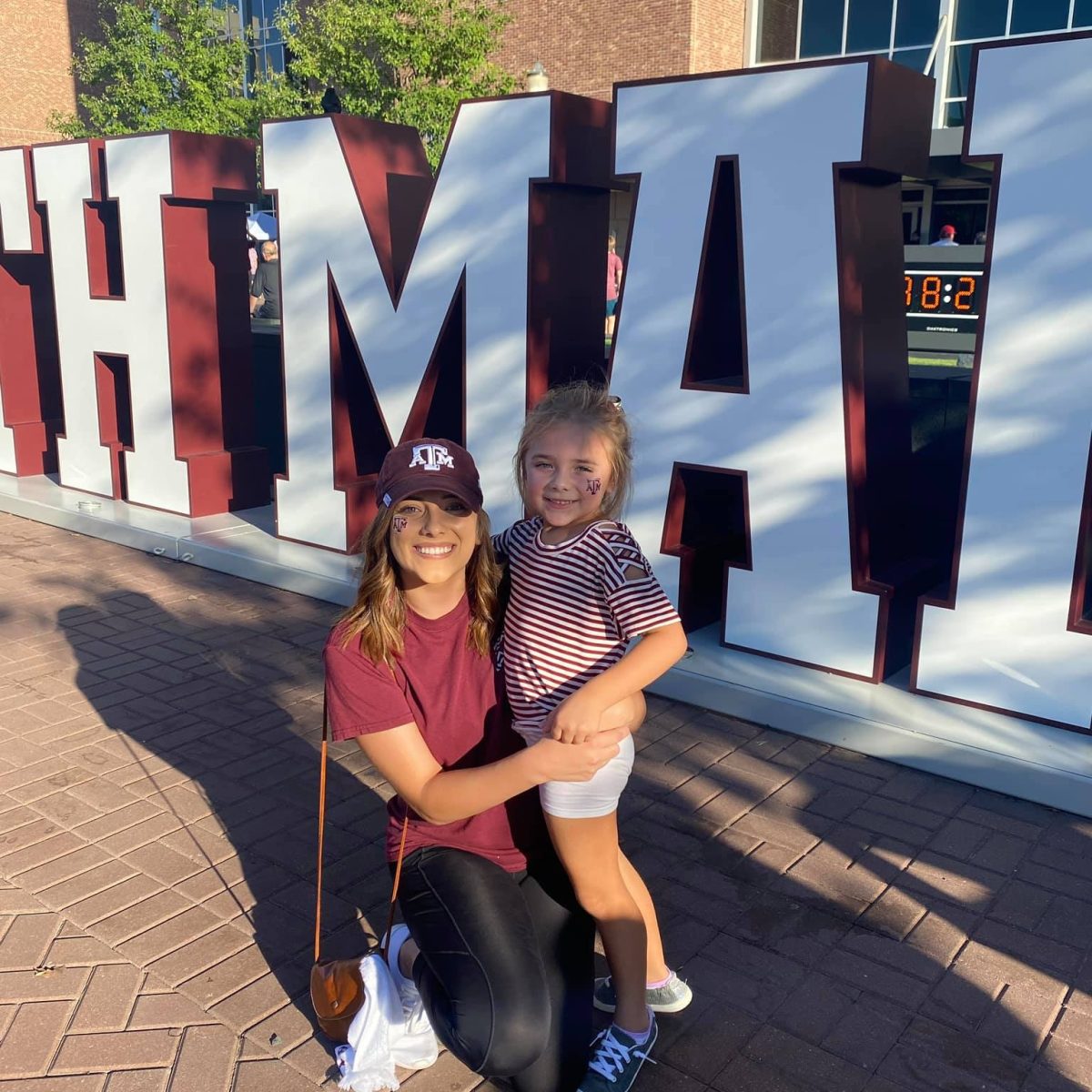Just off of F&B Road and Agronomy Road, nestled behind build sites, lies a hidden gem of Texas A&M’s veterinary medicine facilities: the Schubot Center for Avian Health.
Here, research and care are given to exotic birds for the betterment of vet students, researchers and the birds themselves.
In addition to the aviary building, the Schubot Center for Avian Health includes a network of over 75 researchers dedicated to studying different aspects of bird science, including infectious diseases, nutrition, genetics and conservation, all of which aim to improve the coexistence of birds and humans.
According to Sarah Hamer, Ph.D., professor of epidemiology in the College of Veterinary Medicine and Biomedical Sciences and director of the Schubot Center for Avian Health, the research conducted is just as important to birds as it is to people.
“I was studying … the West Nile virus and how it was decimating wild bird populations but also making people really sick,” Hamer said. “I got really interested in that wildlife-human health interface and wanted to do more.”
Throughout her studies, Hamer repeatedly noticed a relationship between human health problems and the ecosystem. This connection, called the “One Health Initiative,” recognizes the codependency of animals, humans and ecosystems in an effort to create more integrated scientific solutions.
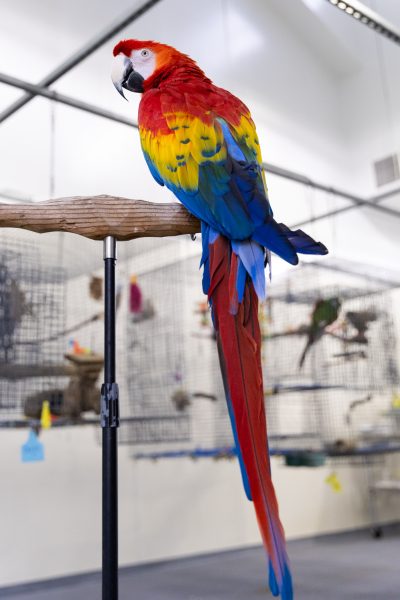
“If we can get … a team together and look at health more holistically … we can train our students to be multidisciplinary rather than lead their own project,” Hamer said.
Every team member has a passion for birds, but for E.V. Voltura, Ph.D., a postdoctoral research associate at the Schubot Center, her dedication has spanned her entire life.
“I fell in love with parrots when I was 11 years old due to a National Geographic magazine,” Voltura said. “I did my first presentation on monk parakeets when I was … twelve, and I said I wanted to get a Ph.D. at 13. I’ve been fighting for that dream ever since.”
She is particularly fascinated by the behaviors of parrots, observing how their unique intelligence can mirror our own.
“It inspires a natural sense of wonder … and encourages us to be stewards of it,” Voltura said. “… We want to understand how to take better care of them so we can have those relationships.”
The facility is home to a population of monk parakeets, a variety of macaws, cockatiels, pigeons and more, all of which provide students the opportunity to get important hands-on experience while striving for their education goals.
To Carlos Davila Jr., a third-year veterinary student, being able to handle live animals is a unique privilege A&M makes accessible to its students. Davila says the Schubot Center experience is what brought him to A&M in the first place.
“I really felt like I needed more overall bird experience,” Davila said. “They’re research birds, so they’re kind of wild, but they’re also birds you may see more in practice. So it’s a great way to get familiar with their behaviors.”
Hamer said that one of the opportunities students get at the Center is to train birds.
“Every day we have students that are part of an avian behavioral training class…” Hamer said.“… It’s enrichment for the birds, and the students are learning so much about animal behavior.”
There are also a handful of programs that encourage the next generation of veterinary students by sparking that initial interest in Bryan-College Station kids.
“We’ve been inviting different groups to come tour our aviary and learn about birds and science,” senior research associate and aviary manager Debra Turner said. “There’s STEM-focused summer camps and most recently a Girl Scout troop.”
Turner oversees dozens of avian caretakers each year, including biomedical science, animal science and ecology students, many of whom go on to veterinary and graduate school. She’s contributed critical research since she joined Schubot in 1999, and as a former student herself, said the center provides key learning opportunities for students looking to enter the veterinary medicine field.
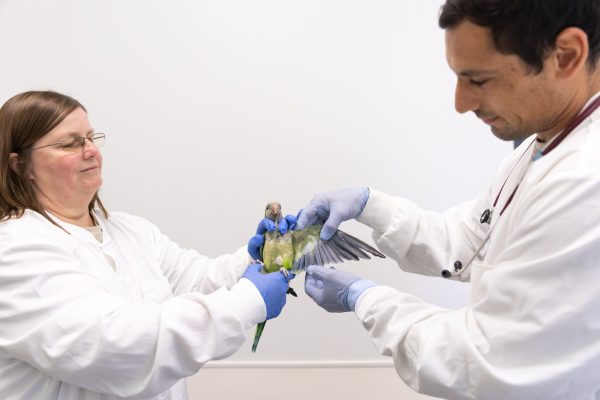
“You need to learn how to handle a bird,” Turner said. “You have to have the passion to go into this niche of the world.”
The Schubot Center is currently collaborating with the Biodiversity Research and Teaching Collections and other programs on campus to advance the “Lights Out” initiative, which aims to protect migratory bird flocks from running into glass by turning off campus lights at night.
However, the main focus of the facility is research in avian nutrition, conservation and diseases.
“The Schubot Center has such a broad research portfolio due to the great work of all its members, and we have a small grant program to expand avian research across campus,” Hamer said. “Regarding infectious diseases, we have projects underway to design better diagnostic tests and a vaccine for Avian Bornavirus, and we’re also conducting surveillance to learn more about highly pathogenic avian influenza, which is a huge threat to animals right now.”
Voltura encourages pet owners and others to reach out when it comes to issues of nutrition and the health of captive birds.
“Look out for information from people with expertise in … dietary habits and nutrition and their veterinarians,” Voltura said. “Get involved, reach out to veterinarians and bird clubs and researchers. Ask us questions. That’s what we’re here for.”

